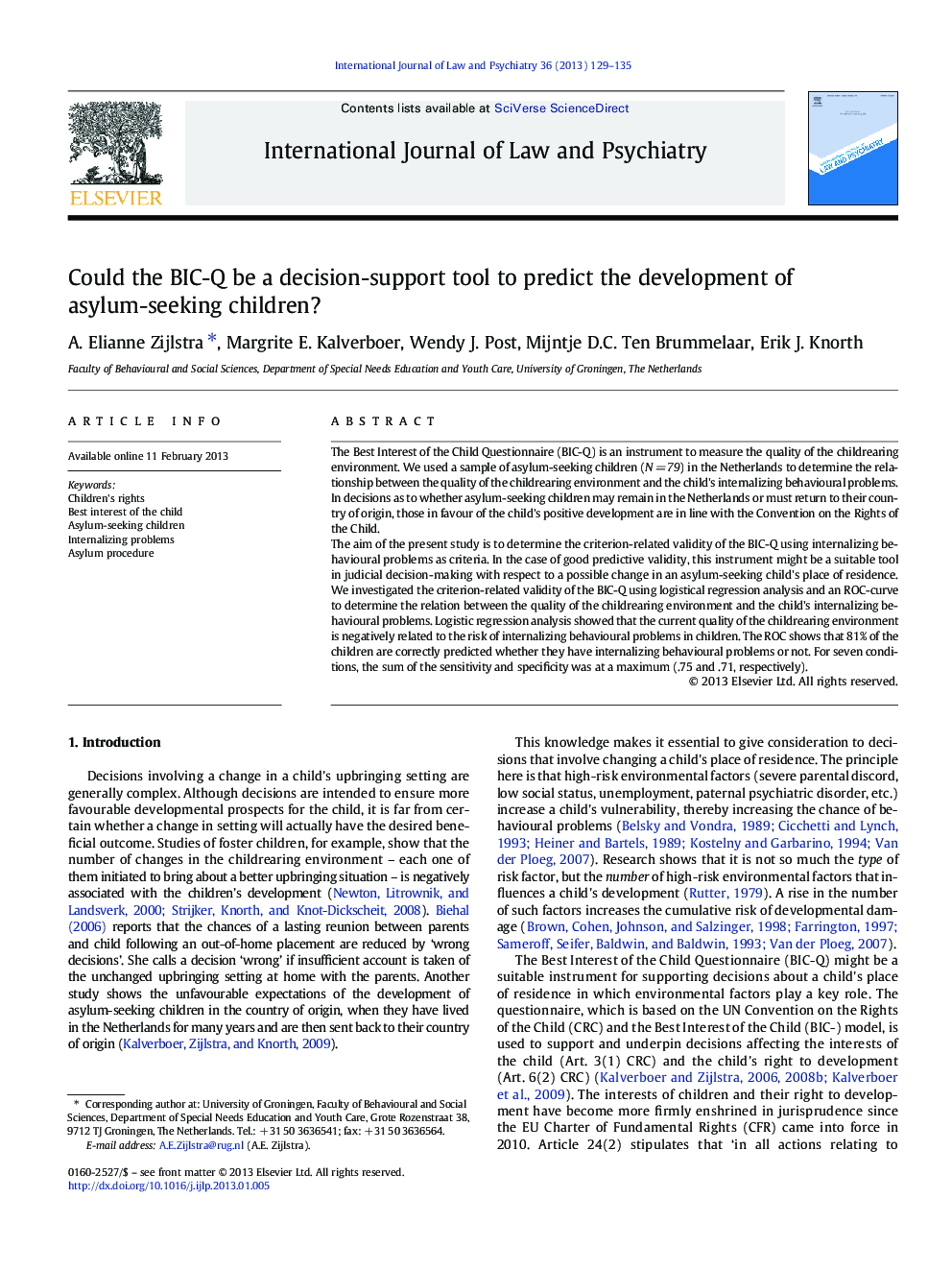| Article ID | Journal | Published Year | Pages | File Type |
|---|---|---|---|---|
| 100888 | International Journal of Law and Psychiatry | 2013 | 7 Pages |
The Best Interest of the Child Questionnaire (BIC-Q) is an instrument to measure the quality of the childrearing environment. We used a sample of asylum-seeking children (N = 79) in the Netherlands to determine the relationship between the quality of the childrearing environment and the child's internalizing behavioural problems. In decisions as to whether asylum-seeking children may remain in the Netherlands or must return to their country of origin, those in favour of the child's positive development are in line with the Convention on the Rights of the Child.The aim of the present study is to determine the criterion-related validity of the BIC-Q using internalizing behavioural problems as criteria. In the case of good predictive validity, this instrument might be a suitable tool in judicial decision-making with respect to a possible change in an asylum-seeking child's place of residence.We investigated the criterion-related validity of the BIC-Q using logistical regression analysis and an ROC-curve to determine the relation between the quality of the childrearing environment and the child's internalizing behavioural problems. Logistic regression analysis showed that the current quality of the childrearing environment is negatively related to the risk of internalizing behavioural problems in children. The ROC shows that 81% of the children are correctly predicted whether they have internalizing behavioural problems or not. For seven conditions, the sum of the sensitivity and specificity was at a maximum (.75 and .71, respectively).
